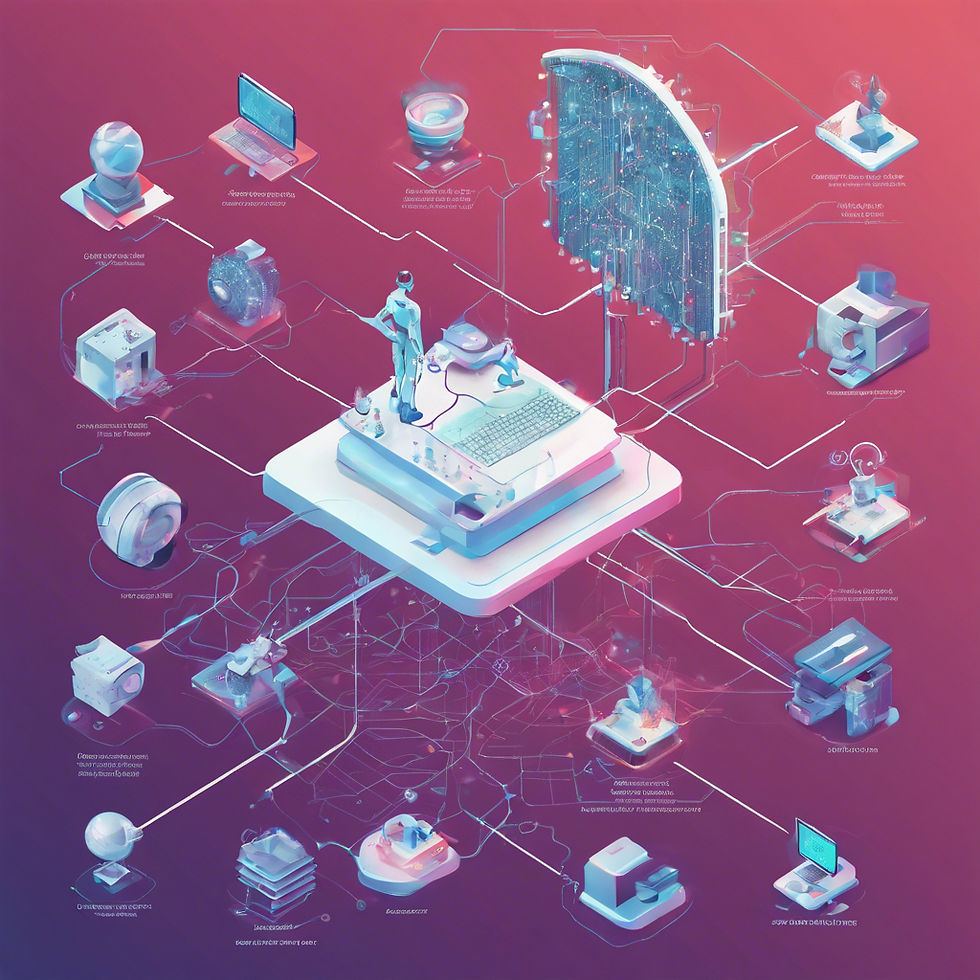WEF: How Venture Capital is Investing in AI in the Top Five Global Economies — and Shaping the AI Ecosystem
- APAC Foreign Investment Brief

- Jun 6, 2024
- 3 min read
Here's what you need to know about the private AI investments in the top 5 economies and each country’s approach to the future of AI.
Artificial Intelligence (AI) has emerged as a transformative force reshaping industries, economies and societies worldwide — but how venture capital (VC) is investing in this new technology across different countries varies greatly.
The allocation of resources toward AI research, development and implementation varies globally, reflecting diverse strategies, priorities and visions for the future.
US: Market-driven innovation
In the US, a fervent gold rush in private AI investment has catalyzed transformative developments across key sectors such as autonomous vehicles, healthcare, and IT infrastructure. VC investments in AI totaled $290 billion over the last 5 years. In the US, optimistic projections suggest that AI could boost annual GDP growth by 0.5 to 1.5% over the next decade. That's $1.2 trillion to $3.8 trillion in real terms.
The Autonomous Vehicle Proving Grounds Program is attracting private investment in research and development, particularly from major domestic tech players like Google, Tesla, and Uber. Policy initiatives like the AV START Act, designed to streamline testing and deployment processes, are contributing to a more investor-friendly environment, fostering optimism and confidence in the future of autonomous vehicles.
Major US healthcare companies and venture capital firms are actively investing in AI-powered medical diagnostics and remote patient monitoring technologies. The country’s aging population has propelled demand for AI-driven healthcare solutions. Efficiency concerns have prompted investments in tools to streamline administrative processes and resource allocation in hospitals. Moreover, the US Food and Drug Administration's (FDA) increasing openness to approving AI-powered medical devices, exemplified by recent approvals such as an AI-based system for early detection of diabetic retinopathy, is fostering confidence among investors and driving further investment in healthcare AI.
Elsewhere, the US government has introduced the Federal Cloud Computing Strategy aimed at modernizing and securing IT infrastructure across the country. AI is also emerging as a key tool to automate data management tasks, optimize network performance and enhance security measures. Cloud adoption in the US is on the rise, necessitating advanced infrastructure management tools powered by AI to optimize resource allocation and drive cost efficiencies.
China: Growth and modernization
China's AI market is projected to exceed $61 billion by 2025, a testament to the nation's rapid strides in AI development. The OECD data reflects that the VCs have invested approximately $120 billion in the AI ecosystem of China, particularly in the autonomous vehicles, robot sensors and IT Hardware.
China has solidified its position as a global leader in robotics and AI through strategic plans like "Made in China 2025" and the national AI development plan. With substantial government support, China has become the world's largest market for industrial robots, surpassing the US with 52% global robot installations. China's expertise extends to service robots in logistics, healthcare and consumer applications. The nation has fostered 20 major AI hubs through programmes like "AI Champion City". Chinese AI companies have expanded globally, securing international contracts for surveillance, smart city and automation solutions, showcasing China's growing influence in the global robotics and AI landscape. China also invests heavily in autonomous vehicles and robotics.
China’s strategy underscores its drive for economic growth, competitiveness and industrial modernization. China’s proactive stance in regulating AI ethics and algorithms reflects a holistic approach to AI governance.
Global trends and challenges
As the AI landscape continues to evolve, several trends and challenges are emerging. The increasing importance of data privacy and security is driving a shift towards more responsible AI development and deployment. The growing need for AI talent is driving a global competition for top AI talent. The increasing importance of AI ethics is driving a focus on developing AI systems that are transparent, explainable, and fair.
The AI investment puzzle is a complex and multifaceted issue, reflecting the diverse strategies, priorities and visions of different countries. As the AI landscape continues to evolve, it is essential that countries adapt their strategies to attract private investment. They must also address emerging trends and challenges, ensuring that AI is developed and deployed responsibly and ethically.








Comments